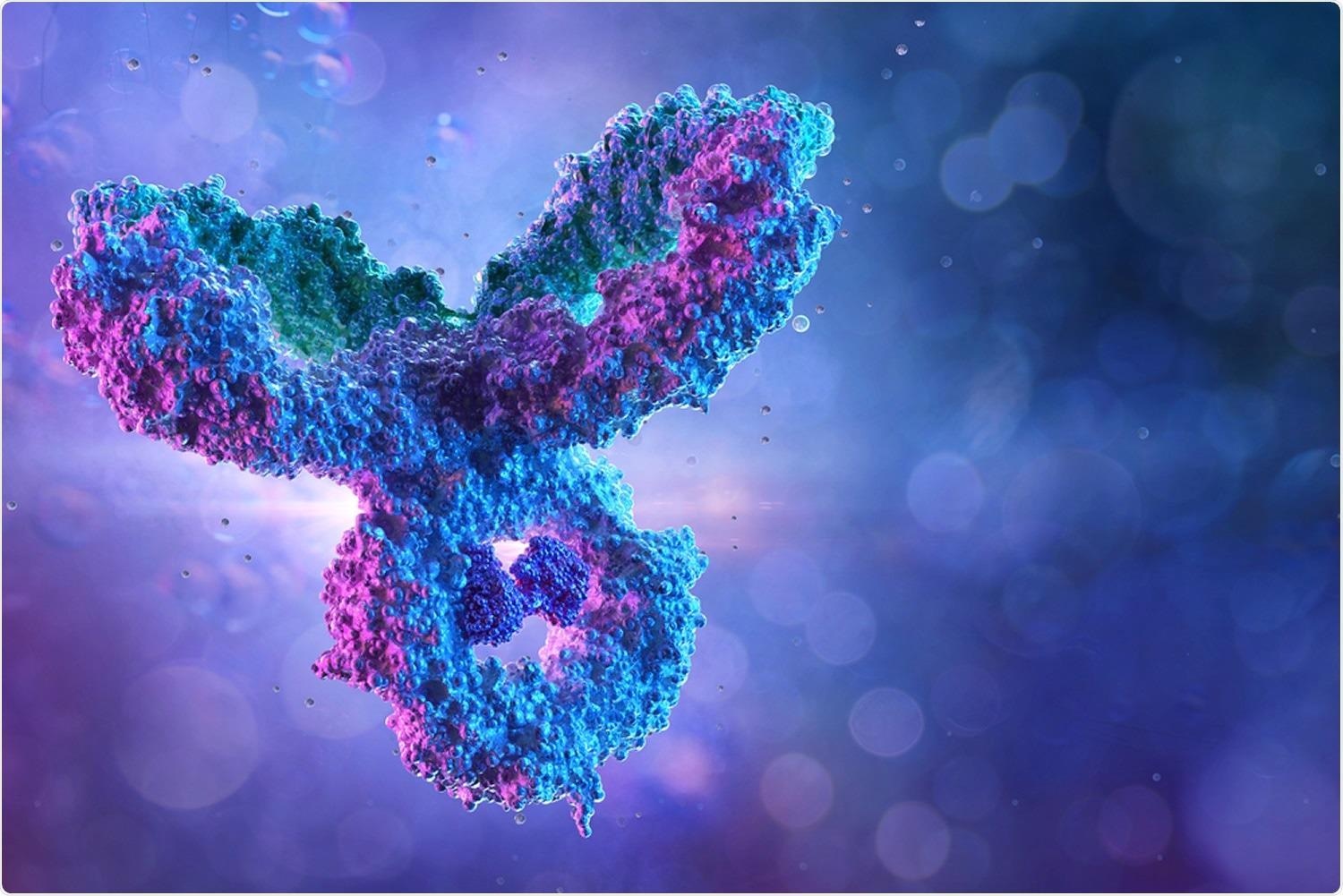Assessing the presence of SARS-CoV-2 antibodies using antibody or serology tests helps identify individuals previously infected by coronavirus disease 2019 (COVID-19). SARS-CoV-2 antibody tests examine antibody response to SARS-CoV-2 spike proteins; however, these tests cannot differentiate between antibodies produced as a result of vaccination and natural infection among populations consisting of a high vaccination rate.
 Study: Identification of Natural SARS-CoV-2 Infection in Seroprevalence Studies Among Vaccinated Populations. Image Credit: Corona Borealis Studio / Shutterstock
Study: Identification of Natural SARS-CoV-2 Infection in Seroprevalence Studies Among Vaccinated Populations. Image Credit: Corona Borealis Studio / Shutterstock
About the study
The present study assessed the reactivity of immunoglobulin G (IgG) antibody assay towards the SARS-CoV-2 nucleocapsid protein to identify natural infection in vaccinated populations.
A longitudinal cohort of health workers was sampled from the metropolitan area of Minneapolis/St. Paul, MN, USA, and two rounds of serological tests separated by almost a month were conducted between November 2020 and January 2021. The team conducted a nucleocapsid-containing assay and a spike-only assay on 81 participants to examine the difference between SARS-CoV-2 antibodies produced by vaccination and by natural infection. Samples from round one were collected before the COVID-19 vaccines were available.
The spike-only assay was a qualitative chemiluminescent enzyme-linked immunosorbent assay (ELISA) that evaluated the reactivity of human IgGs towards SARS-CoV-2 spike subunits S1 and S2. A spike-only assay result is considered 'positive' when the levels of both S1 and S2 antibodies are higher than the assay cutoffs. The nucleocapsid-containing assay measured the reactivity of human IgGs towards SARS-CoV-2 nucleocapsid, which is absent from COVID-19 vaccines and hence indicated natural infection.
Results
The study results showed that the median age of participants was 40 years, among which 83% of individuals were female, 95% were White, 2.5% were Hispanic, and another 2.5% were Asian. Individuals with comorbidities in the study population included 14% people with asthma, 1% with coronary artery disease, 5% with type 2 diabetes, and 2.5% were immunocompromised. Before the first round of testing, none of the participants were vaccinated, while a total of 46% of participants were vaccinated before the second round of testing. Post round one, seroprevalence evaluated by the spike-only assay was 9.5%.
Median levels of S1, S2, and SARS-CoV-2 nucleocapsid were significantly higher in COVID-19-infected individuals in comparison to the uninfected ones. However, among the uninfected participants, higher levels of S1 and S2 were noted in the vaccinated versus the unvaccinated individuals, while the levels of nucleocapsid did not considerably differ as per vaccination status.
The samples in the second round indicated natural infection predicted by nucleocapsid levels with an area under the curve (AUC) of 0.93 with the AUCs for S1 and S2 being 0.81 and 0.89, respectively. The optimal threshold level for nucleocapsid, as per Youden's value, was 0.42 with 0.89 AUC, 90% sensitivity, and 88% specificity. The vaccinated individuals before the second round of sample collection had an optimal nucleocapsid threshold of 0.42 with 0.95 AUC, 100% sensitivity, and 96% specificity.
In the unvaccinated cohort, the nucleocapsid-containing assay and the spike-only assay had sensitivities of 85% and 95%, respectively, while both the assays had 100% sensitivity among the vaccinated group. In the spike-only assay, the specificity among unvaccinated participants was 86%, while among those who had received the COVID-19 vaccine more than 10 days before the second round of testing, had a specificity of 0%. In contrast, in the nucleocapsid assay, the specificity among unvaccinated individuals was 86% and 90% in the vaccinated participants.
Conclusion
The study findings showed that the response of SARS-CoV-2 nucleocapsid accurately predicted previous COVID-19 infection among healthcare workers, while the specificity of the assay was significantly higher in vaccinated participants as compared to that of the spike-only assay. Hence, the researchers believe that assays that evaluated the levels of nucleocapsid protein could accurately predict previous SARS-CoV-2 infections and monitor natural infections.
The usage of nucleocapsid assays in distinguishing vaccination from natural infection can be of tremendous help in detecting undiagnosed SARS-CoV-2 infection and assessing the impact of COVID-19 on the patients' health.
Journal reference:
- Demmer RT, Baumgartner B, Wiggen TD, Ulrich AK, Strickland AJ, Naumchik, BM, Bohn B, Walsh S, Smith S, Kline S, Stovitz SD, Yendell S, Beebe TJ, Hedberg C, Identification of Natural SARS-CoV-2 Infection in Seroprevalence Studies Among Vaccinated Populations, Mayo Clinic Proceedings (2022), doi: https://doi.org/10.1016/j.mayocp.2022.02.002, https://www.sciencedirect.com/science/article/pii/S0025619622000969